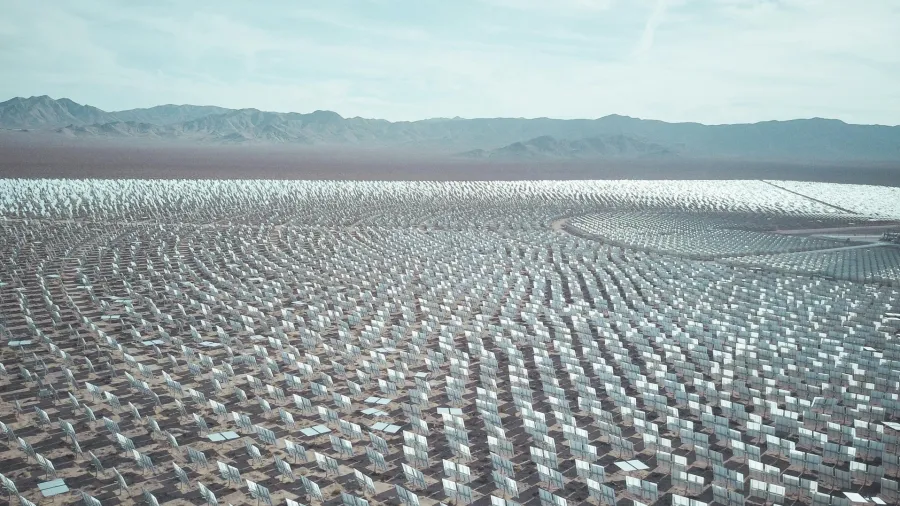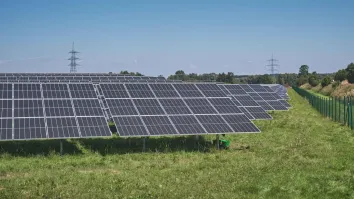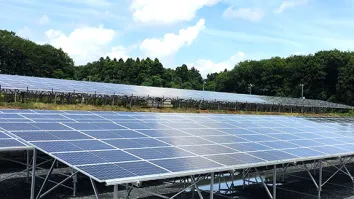
How is APAC faring in managing solar PV waste?
Recycling solar panels remains expensive compared to bringing the waste to landfills.
LOOKING at China and Asia Pacific as the largest solar panel market in the world, it becomes imperative to plan ahead on waste management as the general lifespan of solar panels is only about 25 years. However, the region direly lacks policies that effectively address this concern.
Analysts interviewed by Asian Power said solar waste management should be prioritised to avoid any detrimental effect on the environment in the future. Incentives and tax rebates could be part of an exit plan to encourage the recycling of solar panels, which is no cheap exercise.
Attaurrahman Ojindaram Saibasan
Senior Power Analyst
GlobalData
The APAC region has trailed in providing any specific policies for solar waste management, although we can see several upcoming developments in countries like India and China. Japan already has some policies, and several companies are proactive in the space already. Solar panels’ life cycle generally is 25 years. As the market is huge, the requirement [for solar waste management] would be more.
Right now, there is more awareness towards this, and governments are trying to work towards it.
For example, India’s Ministry of Environment, Forest and Climate Change recently amended the electronic waste management rules to include solar cells and modules.
The Ministry of New and Renewable Energy (MNRE) has also identified solar PV recycling as one of the thrust areas in its new renewable energy Research Development.
The MNRE and the Council on Energy, Environment and Water, published a study estimating that India’s solar PV waste would be around 600 kilotonnes (kt) by 2030 and will be over 19,000 kt by 2050. They suggested the introduction of E-Waste Management Rules and building collection centres and storage facilities.
The storage facilities collection should be near the plants themselves so that there are no additional transportation costs, or they altogether give it to third parties who are specifically into solar PV (photovoltaic) recycling.
Similarly in China in August 2023, the ministry said that they were going to drop new industrial rules to decommission or dismantle the recycled solar PV plants to achieve a solar PV circular economy where the waste is recycled to newer solar PV panels. China’s capacity is huge and is estimated to have 1.5 million metric tonnes of waste by 2030 from solar premium modules.
Japan, in July 2022, mandated generators to give a reserve fund for solar PV plants, which would be returned to the companies at the end of the life cycle of their plants to afford the disposal of these facilities.
The major key point [for solar waste management is] the varying levels of toxicity in the materials used in solar PV panels such as lead, cadmium, and tellurium and they are very toxic to the environment. The waste management is pretty poor in Asian countries, and if we are to add to that, it will contaminate more water and soil resources.
It is a huge concern because some of the solar plants are in very remote areas. The deterioration of the environment is a key aspect that governments and companies should look into. There are no specific or robust policies around it, which need to be implemented soon.
The most important factor is that it is not very economical. For example, the estimated cost for recycling is around $15 to $20, whereas if you just fill it through a landfill, that will cost you $1 to $2 only, and even if you try to recover materials from it, that would fetch you only $3 to $5 around that range.
That does not make the subject very exciting but with proper support from the government and incentives or like mandates, such things would make it essential to recycle. This could be in the form of tax rebates and incentives to recycle that will encourage them to do this.
They can draw examples from the European Union, wherein the companies include the cost of recycling at the end of their lifespan in the project cost.
There are companies that are active in solar waste management. Japan’s NPC, for example, developed solar recycling equipment which claims to recycle over 90% of the materials.
Japan’s Ministry of the Environment, along with Next Energy and Marubeni, bring in blockchain to report and record information on reusing and recycling solar cells. Mitsubishi has also developed a technology that aims to reduce the cost of solar recycling by 20% to 30%, recycling glass and metals from the solar panels.
Sharad Somani
Partner, Head of Infrastructure, Asia Pacific and Head of KPMG ESG
KPMG in Singapore
The management of waste from solar panels in the Asia Pacific region is still evolving. There are currently no solar recycling plants in Southeast Asia and no policies to handle waste from solar panels adequately.
As the adoption of solar technology has grown rapidly, so too has the volume of waste generated from end-of-life solar panels. In Singapore, for example, up to 5,000 tonnes of solar waste could be generated within the next two years.
Several countries are starting to implement strategies to handle this waste, focusing on recycling and proper disposal methods to manage environmental impacts and recover valuable materials.
Effectively managing solar panel waste is crucial to prevent environmental pollution and ensure the sustainability of the renewable energy sector. Hazardous metals, such as lead and cadium, in parts of some solar panels, can harm human health and the environment if not disposed of properly.
Notably, effective solar panel waste management presents significant new business opportunities. By 2030, the cumulative value of recoverable raw material from end-of-life panels is estimated to be around $450 million.
The primary challenges in managing solar waste revolve around technology and infrastructure, policy and regulation, and economic viability. Most countries in the Asia Pacific region lack specialised facilities for solar recycling; and the regulatory framework remains largely underdeveloped. At the same time, costs associated with recycling can be high, around $20-$30 to recycle a panel whilst sending it to a landfill costs $1 to $2.
Actions governments and policymakers can take to tackle these challenges are geared towards the reuse and recycling of solar panels. Possible solutions include increasing legislation related to the treatment of solar waste; creating incentives to encourage innovation to make solar waste management more economically viable; and incentivising the refurbishment of solar panels.
Some countries have made significant progress in managing solar panel waste. In Singapore, Etavolt (technological spin-off from Nanyang Technological University) is the first initiative to support the country’s photovoltaic system.
It works with firms to sustainably recycle used solar panels and determine which solar panels can be upgraded. This involves on-site regeneration of solar panels, a full-scale recycling plant and a mobile recycling plant for the recycling of solar waste.
Japan, by comparison, has issued voluntary guidelines on the proper disposal of end-of-life solar panels. This is an important ESG (environmental, social and governance) matter that will become mainstream in the coming years.
Many regulators and companies will require and commit to the circular economy principle for solar/green power technologies. Investor pressure and green compliance principles will mean proactive plans to manage and ensure solar waste management.

















 Advertise
Advertise






